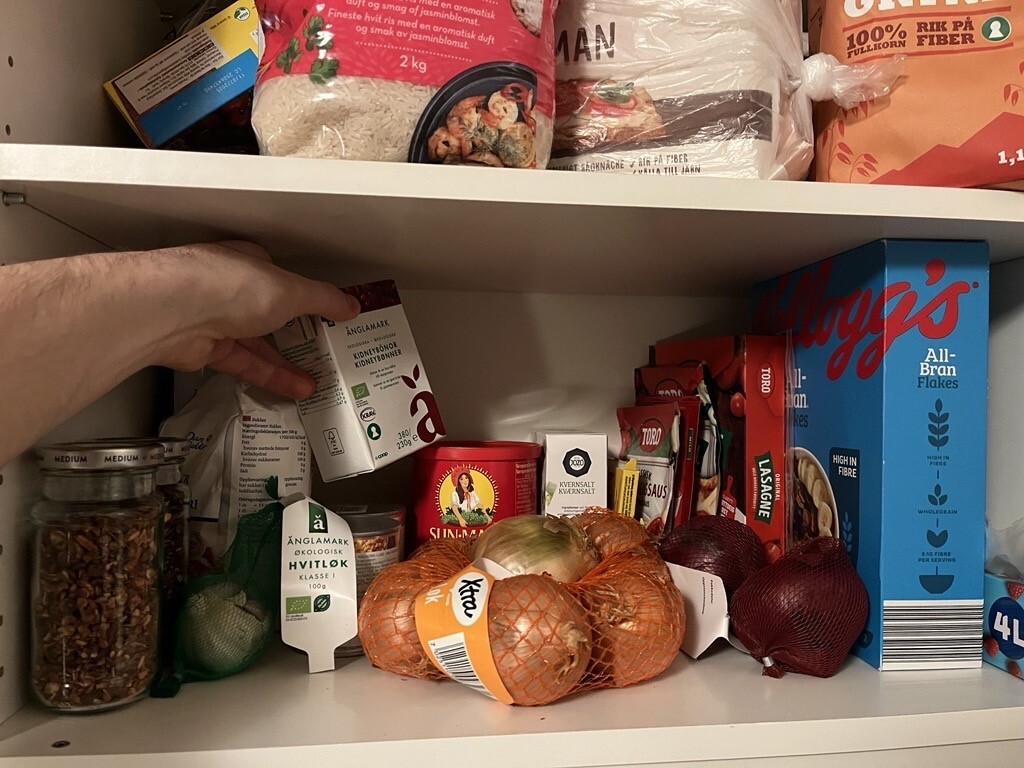NORCE researchers have investigated what it takes for us to throw away less food.
We throw away less food if we:
• buy both fresh produce and more durable products.
• are careful with how we store food.
• keep kitchen cabinets and drawers tidy and organized for better oversight of what we have.
• use items that are close to the expiration date first.
Created 500 Households
The researchers discovered this by creating 500 households based on data from an online survey conducted in the project. This data was then analyzed in a calculation model. This included information about the number of people in the household, the amount of food waste, age, and how often they shop for groceries.
They then simulated how the families behaved and calculated food waste in 24 different situations. In all the situations, the families shopped once a week and stored the goods in cabinets and drawers before fetching what they needed to cook.
People with personality
The method the researchers used is called microsimulation. The purpose is to gain more knowledge about how households' choices affect a larger system over time. The researchers aim to further develop more complicated models with more variables, and give the people more personality. For example, these could be people who have different thoughts about what is most important. Is it the environment, the price of the item, or the ethics?
– Even though we might know what we should do, it's not always that simple. It’s about becoming more aware in everyday life, says Markus Grendstad Rousseau, researcher at NORCE and one of the researchers in the EU project Chorizo.
Less food waste is good for both the planet and the wallet.
By reducing food waste:
• we save valuable resources like water and energy.
• we reduce greenhouse gas emissions and waste.
• we lessen the strain on natural resources.
• we help combat global hunger and reduce poverty.
• we save money by avoiding unnecessary buying and discarding of food.
